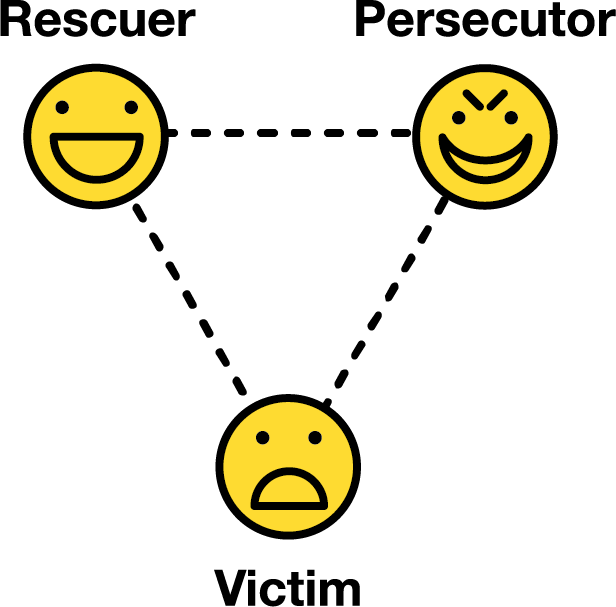Managing Your Mind — Negative Feelings and NLP

The Negative Feeling Cycle
Do you ever find that your mind goes around in circles — thinking and rethinking certain problems, your mental state worsening, with no more clarity as to how to solve the problem? Perhaps you also feel victimised, in conflict with other people?
In this blog, I will give a range of tips of how to deal with these types of negative feelings.
I know that when I feel very upset, I often feel victimised by someone else and go around in negative circles in my mind, blame and shame making the negative feelings worse, not reaching any conclusion.
What can you do in this situation?
How to Deal With Negative Feelings
The first step is to separate out the story from the feelings. Often a negative thought can spark a cycle of remembering a problem which might have been there for years. A familiar story starts again in your mind. As ever, you are unable to find a solution, so you just start feeling worse and worse.
Sound familiar?
This blog is designed to help find a different type of solution. Once you are able to contain your own state, you will then be far more able to find a solution to the original problem.
The key is to learn to focus on improving your state first.
The next time the cycle beings again, notice where the feelings are in your body and simply acknowledge them.
“I feel angry/sad/shame/powerless/fearful — or perhaps a mixture of these. Allow yourself to ‘hold’ these feelings, even if they are uncomfortable. Use your will not to let your mind start the narrative again. Move your attention instead into your body (and away from your head).
Are these feelings in your chest, belly, neck, back ? Where specifically to you feel them? Notice that area. Then do a trick from NLP called submodalities.
This involves giving those feeling areas of your body a shape (perhaps a ball or sausage, try different things). Then try giving them a colour, texture, sound. Keep focused on the feelings, without letting them overwhelm you, and without pushing them away. Simply let them be.
After a while, negative feelings naturally transform and change into something easier to deal with. It is the stories in the mind that ‘stoke the fire’ and keep the negative feelings going. The fear of experiencing these feelings also makes them worse.
Thinking can undoubtedly be useful. But only if we use it to learn why we have these types of stories and take a more flexible view. Realise that the black and white quality of these stories is both unhelpful and ultimately untrue.
Another helpful form of thinking is to frame the issue using different psychological models. The ones that I have found the most helpful are from Transactional Analysis: Games and Scripts.
Mind Games
Young children adapt to life by finding novel ways to gain attention and provide themselves with safety and protection. As children grow up, these behaviours can become more ritualistic and strange.
Eric Berne discovered that many people like to ask for help when they don’t really need it, simply to gain attention. He called this behaviour a ‘game’. The first was ‘Why Don’t You? Yes But..”. Here is an example:
“He/She was rude to me, what should I do?”
“Why don’t you tell them that their behaviour is unacceptable.”
“Yes but, I don’t want to offend them. They are having a really hard time at the moment.”
“Why don’t you try a gentler approach, but still express yourself.”
“Yes but, they are one of my best friends and I can’t risk losing them.”
“Why don’t you just put up with it then?”
“Yes but I don’t think it is right to put up with rudeness, do you?”
“Why don’t you……” [You become frustrated].
At this point the person may give a little smile: they have won the game. Their subconscious aim was always to gain an emotional reaction from you, not to gain your advice.
These games can be generalised into something called the Drama Triangle.
The Drama Triangle
The key principle here is that our ‘story’ involves a basic structure.

We think that someone is behaving badly. They are the Persecutor. We then either feel scared or shamed, and become The Victim. Or if someone else is suffering, we may want to help them, and become a Rescuer.
Either way, we want to get even somehow. This in turn involves us changing roles to become the Persecutor ourselves.
We then rotate around the triangle as we consider that these people may then take revenge on us for our action and we become the Victim again.
The key point is that we play this drama triangle within our own minds. Other people may have synchronised drama triangles with us, butultimately we all play these games within ourselves.
Scripts
The idea that our very identity may have aspects of an ongoing Drama Triangle is covered in scripts . We play a role in life, which we mistakenly adopted in childhood to gain love and protection, but also to make us acceptable to others.
The anthropologist and psychologist Joseph Campbell wrote his seminal work A Hero with a Thousand Faces. Campbell travelled the world and discovered that around seven core stories have existed in numerous unconnected human cultures for millennia.
Parts of the world that were completely remote from each other became inhabited during the dawn of human migrations by the arrival of pre-linguistic hunter-gathers. What is fascinating is that they somehow independently developed these almost identical stories as their languages evolved.
Campbell’s interpretation of this was that, as a species, we learn our roles as citizens in human society through archetypal myths. This ability to believe in a role is perhaps the most powerful way that humans have cooperated to build societies.
It is perhaps what gives us our greatest advantage over other primates. Chimps whose societies are called troupes tend to break down after a maximum of one a hundred and fifty individuals.
As humans, there tends to be no limit to the size of our society as we are able to believe a collective subjective reality based on little more than illusion created by a story.
If you take the story of Little Red Riding Hood which was popularised by the Grimm brothers; this is very similar to the Greek myth of Zeus and Europa. In Nigeria and Peru, almost identical stories exist.
Freud pointed out that the child often becomes confused by the symbolism of these stories, such as the metaphor of the stork delivering a baby, and can misinterpret them.
Eric Berne developed the idea further into life-scripts. This is where a young child can take these characters literally and believe it is actually their role in life. They then build them up with a bewildering array of experiences and observations and produce a person who superficially appears to be in charge, yet underneath it, there is an archetypal character, secretly running the show.
What role do you play?
This is a hard question, but a useful one to be able to answer.
The classic roles are the victim princess or the prince charming rescuer.
However, people also identify with some of the supporting characters — the overlooked sister/brother, the Wolf etc.
These roles might have helped our forefathers create order and build railways and the pyramids, but they are very destructive for our own welfare and need to be rethought. We cover this specifically on our NLP Practitioner Trainingwith a process called Rescripting.
Conclusion
The argument then goes that we are hard-wired to have these stories within us.
The positive side of this is that we have been able to build the amazing societies we all live within.
There are however a number of negatives. One is blindly believing stories that are destructive to ourselves and others, such as racism.
But for this blog, it is the stories that we tell ourselves about our situation, that can become a way of torturing ourselves.
There is a better way: be uniquely you. That is the real story!
Did you like this post?
Then check out our events and courses!
Where to find us
For posts, events, free open days and more, follow NLP School on:
What to read next
Improve Your Confidence With NLP








